Signs and Symptoms of Cancer
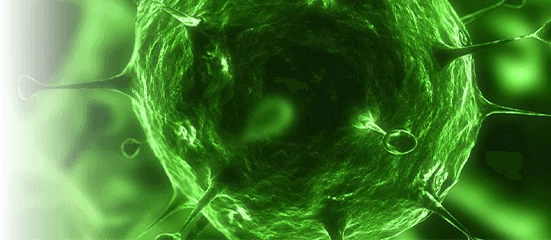
Overview
Cancer can be difficult to diagnose, as there are often no obvious signs or symptoms in the early stages. Some people may experience very mild symptoms, while others may not experience any at all. Here we look at signs and symptoms of cancer by gender and types.
Always remember, it is important to seek medical advice as soon as possible. Routine screenings, early detection and treatment can greatly increase the chance of successful recovery.
8 Warning Signs and Symptoms of Cancer
- Unusual bleeding or discharge
Any unusual bleeding from any orifice of the body may be a sign and symptom of cancer. Blood in the phlegm could be a sign of lung cancer. Blood in the stool (or a dark or black stool) could be a sign of colorectal cancer. Abnormal vaginal bleeding could indicate uterine, ovarian or cervical cancer. A bloody discharge from the nipple may be a sign of breast cancer.
- Thickening of lump in the breast or on other parts of the body
Many cancers can be felt through the skin, particularly in the breasts, testicles, lymph nodes, and the soft tissues of the body. A lump or thickening may be an early or late sign of cancer and should be reported to a doctor, especially if you have just discovered it or noticed that it has grown in size. You may be feeling a lump that is at an early stage of cancer that may be treated successfully. Any lump or thickening on any part of the body should be reported to your doctor as this could be an early or late sign of cancer.
- Change in bowel habits or bladder function
Chronic constipation, diarrhea, or a change in the size of your stool may indicate colon cancer. Pain with urination, blood in urine, or a change in bladder function (such as more frequent or less frequent urination) may be related to bladder or prostate cancer. Any changes in bladder or bowel function should be reported to your doctor.
- Nagging cough or hoarseness
A persistent cough may be a sign of lung cancer. Persistent hoarseness could be a sign of cancer of the larynx (voice box) or thyroid.
- Indigestion or difficulty in swallowing
While they commonly have other causes, these symptoms may indicate cancer of the oesophagus, stomach, or pharynx (throat).
- Recent changes in a wart or mole
Any change in the colour, shape, size or loss of definite borders of a wart or mole should be reported to your doctor immediately. It could be a sign of melanoma which, if diagnosed early, may be treated successfully.
- Sores that refuse to heal
Sores on any part of the body which are difficult to heal, such as sores on the skin, vagina, or oral cavity, should be dealt with promptly and should not be overlooked.
- Unexplained weight loss or fever
An unexplained weight loss of about 5kg may be the first sign of cancer, particularly cancers of the pancreas, stomach, oesophagus, or lung. Fever may be a symptom of cancer at an advanced stage of the disease.
- Persistent bone pain
Bone pain could be the result of overexertion, injury, infection or cancer. An unexplained persistent pain should not be ignored as it may be a sign of cancer. When cancer has spread from its point of origin to other parts of the body, almost all patients with cancer will experience fever at some stage, particularly if the cancer or its treatment affects the immune system and reduces resistance to infection.
If you experience any of these symptoms, do not hesitate to seek medical advice. Early detection and treatment can save lives. Additionally, it is important to be aware of the risk factors associated with certain types of cancer such as genetics, lifestyle choices (e.g., smoking), and environmental factors (e.g., UV radiation).
Taking steps to reduce your risk can help prevent cancer or delay its onset. Regular check-ups are also important in order to identify any abnormalities as early as possible. Early detection and treatment can be key to successful outcomes.
Signs and Symptoms of Cancer by Gender
Male
Men may develop some of the same signs and symptoms as female patients. However, they are also more prone to certain male-related conditions. These include:
- Urinary issues - such as difficulty starting or stopping urination, frequent urination, or blood in the urine or semen
- Swelling in the testicles
- Increased breast size, nipple discharge, or itchy rashes
- Persistent coughing
- Change in bowel habits
Female
Female cancer patients may experience some of the same signs and symptoms as male patients. However, they are also prone to certain conditions that are exclusive to women. These include:
- Irregular menstrual cycles - such as extremely heavy or light periods, missed periods, or bleeding between periods
- Vaginal discharge that is thick or has a strange odour
- Pain during intercourse
- Unusual swelling or lumps in the breast, armpit, or groin area
- Abdominal distension, or swelling
Signs and Symptoms by Type of Cancer
Prostate Cancer
Prostate cancer is a common type of cancer in men. Common signs and symptoms include:
- Difficulty starting or stopping the urinary stream
- Weak or interrupted flow of urine
- Frequent urges to urinate, especially at night
- Bone pain in advanced disease
- Blood in the urine or semen
Men above 50 years can consider biannual Prostate-Specific Antigen (PSA) blood test to screen for prostate cancer.
Stomach Cancer
Stomach cancer incidence is gradually decreasing in Singapore, especially those that arise in mid and lower parts of the stomach. However, cancer in the upper part of stomach and lower part of esophagus is increasing. Common signs and symptoms include:
- Abdominal pain or discomfort
- Nausea and vomiting
- Loss of appetite
- Unexplained weight loss or fatigue
- Blood in the stool or vomit
Cervical Cancer
Cervical cancer is a type of cancer that can affect women. Common signs and symptoms of cervical cancer include:
- Vaginal bleeding or discharge between periods
- Abnormal vaginal bleeding after sexual intercourse
- Pelvic pain or pain during intercourse
- Unusually heavy or long menstrual period
Females, aged 9 to 26, are recommended to get the Human Papillomavirus (HPV) vaccination to prevent cervical cancer.
It is also important for women, aged 25 and above, who have engaged in sexual intercourse or are sexually active to have regular Pap smears to help detect the disease early.
Ovarian Cancer
Ovarian cancer is often a silent form of cancer. This means that many women do not experience any symptoms until the disease has advanced. Common signs and symptoms of ovarian cancer include:
- Abnormal bloating or swelling in the abdomen
- Feeling full after eating only a small amount of food
- Pelvic pain or pressure, or back pain
- Unexplained changes in bowel habits, like constipation
- Abnormal vaginal bleeding
Breast Cancer
Breast cancer is the most common form of cancer in women. Common signs and symptoms of breast cancer include:
- A lump or thickening in the breast or underarm area
- Changes in the size, shape, or texture of a breast
- Changes to the nipple such as a discharge or redness
- Swelling or pain in the armpit or chest area
- Itching or scaling of the nipple
Regular self-examination and annual mammograms are recommended for women who are 40 years of age and above.
Colorectal/ Colon Cancer
Colorectal cancer is the most common form of cancer in men and second most common in women in Singapore. Common signs and symptoms of colon cancer include:
- A change in bowel habits such as diarrhoea, constipation, or narrowing of the stool that lasts for more than a few days
- Blood in the stool (either bright red or very dark)
- Feeling tired or weak
- Unexplained weight loss
- Abdominal pain, cramping, bloating, or discomfort
Routine screening is the most effective way to detect colon cancer early on. Colonoscopies are recommended for people over the age of 50. Those at a higher risk may need to be screened more frequently.
Mouth and Throat Cancer
Mouth and throat cancer can be difficult to detect, as the symptoms may often go unnoticed. Common signs and symptoms of mouth and throat cancer include:
- Sore in the mouth or on the tongue that does not heal
- White patches or red spots in the mouth
- Pain when chewing or swallowing
- Voice changes
- Unusual lumps in the neck
- Unexplained weight loss
Skin Cancer
Skin cancer is one of the most common types of cancer, and there are several warning signs to be aware of. Common symptoms of skin cancer include:
- Sores that do not heal
- Changes in the size or colour of a mole
- A growth that bleeds, oozes, or crusts over
- Unusual patches or lesions on the skin
Proper sun protection, such as wearing sunscreen and avoiding prolonged exposure to direct sunlight, is also essential for preventing skin cancer.
Lung Cancer
Lung cancer can be difficult to detect in the early stages. Common signs and symptoms of chest cancer include:
- Coughing up blood
- Wheezing or shortness of breath
- Pain in the chest or shoulder
- Unexplained weight loss
- Fatigue or weakness
- Swelling in the face, neck, and arms
Cancer Prevention: Tips to Reduce Risk
The existing body of knowledge about the causes of cancer and about interventions to prevent and manage cancer is extensive. Cancer Control is understood as public health actions which are aimed at translating this knowledge into practice. It includes the systematic and equitable implementation of evidence-based strategies for cancer prevention, early detection of cancer and management of patients with cancer. These are some measures you can take to minimise the risk of cancer:
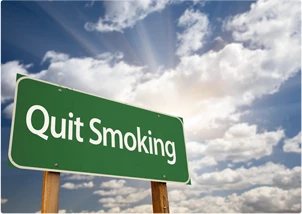
1. Don't use tobacco
All types of tobacco can lead to cancer. Rejecting tobacco, or deciding to stop using it, is one of the most important health decisions you can make. It’s also an important part of cancer prevention. Avoiding tobacco in any form significantly reduces your risk of several cancers. Even if you don’t smoke, reduce your exposure to secondhand smoke. Many people around the world die of lung cancer caused by secondhand smoke.

2. Eat a variety of healthy foods
Though making healthy selections at the supermarket and at all meals can’t guarantee you won’t get cancer, it may help reduce your risk. About 30 percent of cancers are related to issues of nutrition, including obesity.
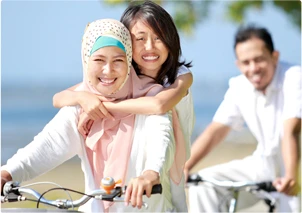
3. Stay active and maintain a healthy weight
Maintaining a healthy weight and exercising regularly also plays an important role in cancer prevention. Physical activity can help you avoid obesity by controlling your weight. Physical activity on its own may also lower your risk of other types of cancer, including breast cancer and colon cancer. Try to be physically active as often as you can. Your exercise sessions can include brisk walking, walking the dog or even playing with the children in the park.

4. Protect yourself from the sun
Skin cancer is one of the most common kinds of cancer and one of the most preventable. Although repeated exposure to X-rays or contact with certain chemicals can play a role, sun exposure is by far the most common cause of skin cancer. Most skin cancer occurs on exposed parts of your body, including your face, hands, forearms and ears. Nearly all skin cancer is treatable if you detect it early, but it’s better to prevent it in the first place.
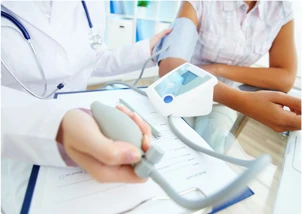
5. Get immunised
Certain cancers are associated with viral infections that can be prevented with immunisations. Talk to your doctor about immunisation against:
Hepatitis B
Hepatitis B can increase your risk of developing liver cancer. Vaccination is recommended for all babies. Certain high-risk adults also may need to be vaccinated.
Human papillomavirus (HPV)
HPV is a sexually transmitted virus that can lead to cervical cancer. Talk to your doctor about whether you would benefit from immunisations to reduce your risk of cancer.
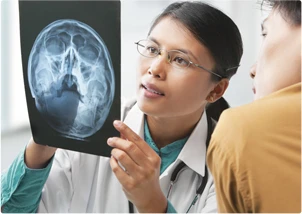
6. Get screened
Regular screening and self-examination for certain cancers may not prevent cancer, but it can increase your chances of discovering cancer early — when treatment is more likely to be successful. Screening should include your skin, mouth, colon and rectum. If you’re a man, it should also include your prostate and testes. If you’re a woman, add cervix and breast cancer screening to your list. Be aware of changes in your body — this may help you detect cancer early, increasing your chances of successful treatment. If you notice any changes, see your doctor immediately.
Frequently Asked Questions (FAQ)
The first signs of cancer can vary depending on the type and location. Generally, they may include any noticeable changes in the body that are not normal or otherwise healthy.
The number one symptom of cancer is an unexplained lump or mass. This can often be felt in the breast, stomach, or neck area and should be checked out by a doctor if it persists for more than two weeks.
In addition to feeling a lump or mass, other common signs may include unusual bleeding or discharge, change in bowel habits or urinary symptoms, persistent cough and abdominal discomfort, indigestion, or distension. Unexplained weight loss is also a common symptom and should be investigated by a physician. It is important to remember that these symptoms may not always indicate cancer and can be caused by other medical conditions. Therefore, it is best to see your doctor for assessment.
←What Causes CancerMyths about Cancer→
Disclaimer Notice: The information provided on this website is not intended or implied to be a substitute for professional medical advice, diagnosis or treatment. All content, including text, graphics, images and information, contained on or available through this website is for general information purposes only. Parkway Cancer Centre makes no representation and assumes no responsibility if the information, contained on or available through this website, is taken without our specialists’ consult.
